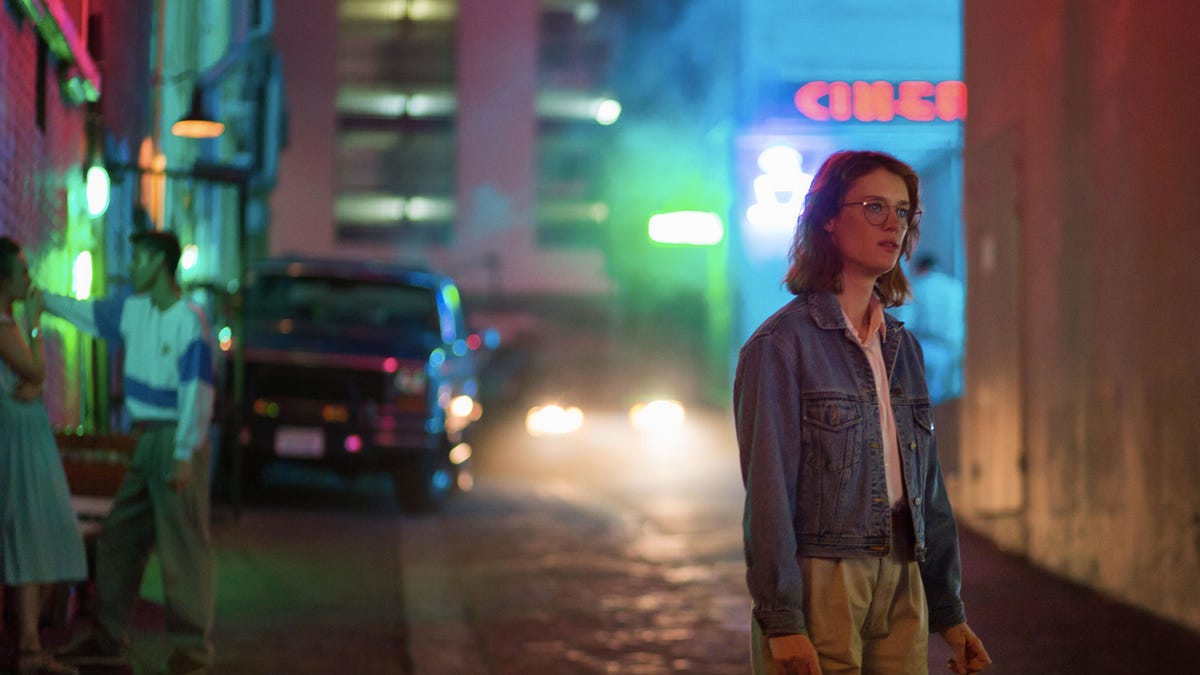New 'Black Mirror' isn't quite Brooker's bleakest, blackest best
While it's not the gut-punch of earlier seasons, the new Netflix series can still unnerve with stories of technology twisted to our darkest desires.

I had the weirdest dream after watching "Black Mirror".
I don't remember the specifics -- something about virtual reality and memories and creeping body horror -- but I know I woke up sweating, disoriented and filled with dread. Technology and dread, the "Black Mirror" recipe, fills the show's most ambitious run yet.
Masterminded by tech-obsessed writer, journalist and curmudgeon Charlie Brooker, the third season is on Netflix now. Previous seasons were shown on British television and ran for three episodes but this new one, produced by Netflix, expands to six instalments.
Sadly, the formula is spread a little thin. None of the new episodes quite reach the emotional gut-punch of previous highlights such as "Be Right Back" and "The Entire History of You". Nor do they achieve the satirical savagery of "15 Million Merits" or "The National Anthem".
Two episodes come close, though.
"San Junipero" is the most emotionally resonant of the new season. A jaunt into 1980s nostalgia stealthily sneaks in a heartfelt twist with a more hopeful vision for technology.
Gugu Mbatha-Raw and Mackenzie Davis appear in "San Junipero".
"Hated in the Nation" is an unremittingly bleak near-future tale that throws many of the worst things about modern life against the wall in a spiral of depravity, from social media witch-hunts to government surveillance to technology accelerating beyond our capacity to control it. It's all framed in a mash-up of police procedural and schlock-tastic B-movie.
Of the other episodes, "Nosedive" is the most visually ambitious. It takes place in a pastel paradise of silent self-driving cars and blanketing blandness. Written by "Parks and Recreation" star Rashida Jones and Mike Schur, creator of "Parks and Rec" and "Brooklyn Nine-Nine ", the episode stars Bryce Dallas Howard as a woman living in a world where everybody rates each other to determine social status.
It's an extension of the way people share an idealised version of their lives online, but the episode is more than a dig at vapid social media oversharing. The story examines the way we police our behaviour when the world can publicly turn against us.
And it indicts the potentially isolating effects of the sharing economy, where every interaction is a transaction, where even your friendship is up for sale.
The remainder of the tales are shaggy dog stories that occasionally meander towards their twists. "Shut Up and Dance" is a fairly ordinary tale of blackmail with only the vaguest tech trimmings. "Playtest" plays with haunted house tropes, while "Men Against Fire" is a timely but on-the-nose metaphor about the way we treat immigrants.
While the new episodes don't quite scale the bleak heights of previous seasons, "Black Mirror" remains compelling viewing with its vision of the way technology gives us new ways to be awful to each other. It rarely gives us an easy way out with fripperies like simple explanations or happy endings.
And it gives you the weirdest dreams.

